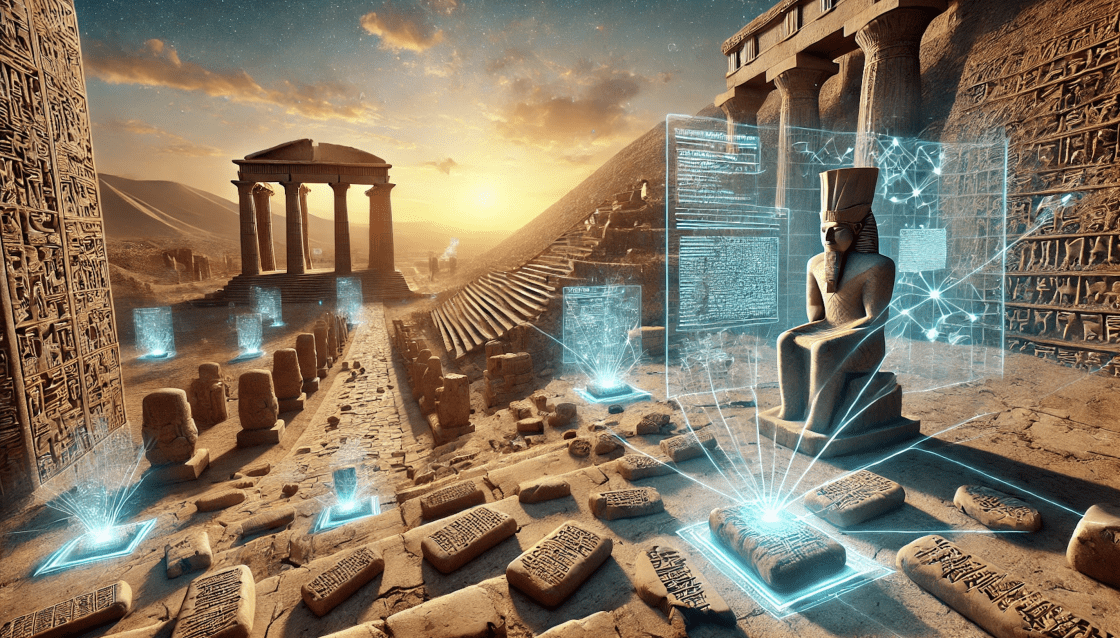For over a century, scholars have been piecing together the Epic of Gilgamesh, one of the oldest literary works in history. Despite relentless efforts, about 30% of this ancient text remained missing—until recently. The introduction of artificial intelligence (A.I.) has revolutionized the field, accelerating discoveries and providing fresh insights into this timeless epic.
A Historical Quest
The story began in 1872 when George Smith, a British Museum employee, stumbled upon a clay tablet inscribed with an ancient flood narrative. Recognizing its significance, Smith embarked on a lifelong quest to uncover more fragments of what we now know as the Epic of Gilgamesh. His discovery sparked a wave of interest among Assyriologists, who have since been working to reconstruct the epic from countless clay tablet fragments scattered across the globe.
The Power of A.I.
Enter Fragmentarium, an A.I. project led by Enrique Jiménez from the Ludwig Maximilian University of Munich. By using machine learning, Fragmentarium can match digitized tablet fragments much faster than any human could. Since 2018, Jiménez’s team has identified over 1,500 new tablet pieces, including 20 from the Epic of Gilgamesh. These fragments have added over 100 new lines to the epic, offering deeper insights into its narrative.
New Discoveries
Among the newly discovered lines are details that enrich key episodes of the epic. For example, after Gilgamesh and his companion Enkidu slay the monster Humbaba, they journey to the sacred city of Nippur to seek forgiveness from the god Enlil. Other fragments shed light on Enkidu’s attempts to dissuade Gilgamesh from killing Humbaba and reveal additional prayers and rituals central to the story.
A.I. and the Future of Assyriology
The use of A.I. has not only accelerated the discovery of missing pieces of Gilgamesh but also promises to unlock more secrets from ancient Mesopotamian literature. Jiménez’s team is expanding their work to include collections at The Iraq Museum, hoping to find even more fragments of this and other ancient texts.
As new discoveries continue to emerge, the Epic of Gilgamesh—like the ancient world it depicts—remains a living, evolving story. Thanks to modern technology, what once seemed lost to time is now being brought back into the light, offering us a deeper understanding of one of humanity’s oldest stories.


